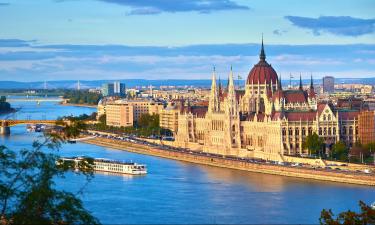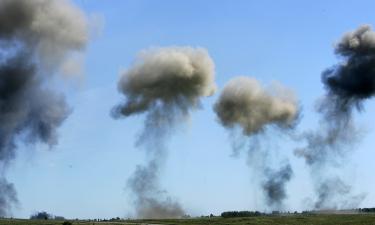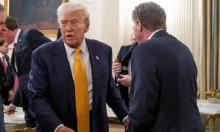Can Putin and Lukashenko turn back time and rebuild the new USSR?
The union of Russia and Belarus has finally emerged from oblivion, but… mirror, mirror on the wall, does it have the brightest prospects of them all? Is it going to be the beginning of the way for Russia and Belarus to rebuild the broken puzzle of post-Soviet states? Can Putin and Belarus turn back time, as Cher once sang?
Why Russia and Belarus turns down political integration
The meeting between Russian and Belarusian presidents Vladimir Putin and Alexander Lukashenko on September 9 turned out to be productive.
As Putin said at the press conference following the summit, the meeting was held to coordinate the unified economic policy of the two countries. Political unification was left aside, because the Belarusian side "had questions".
President of Belarus had this to say:
"If we need to have absolutely close relations, even more powerful than in a unitary state, we (with Putin. — ed.) will do it simply."
The two presidents stressed out that they did not want to repeat the mistakes of their neighbours in the European Union. Therefore, Russia and Belarus have been working on their union meticulously. The union between Russia and Belarus will become an example that all post-Soviet countries may wish to follow on the way to closer integration.
Unified economic space comes first
"We have agreed to conduct a common macroeconomic policy. Then — to harmonize monetary policy, integrate payment systems, we have agreed to ensure information security, deepen cooperation in customs and tax spheres. It goes about the transparency of the customs value of goods and determining a transparent structure of the cost of goods in the economy in general," said Vladimir Putin.
He explained that this would be done by creating a unified technology to determine the cost of goods, while all indirect taxes on goods (these are, for example, VAT, excise taxes, licenses) would be "harmonized." In addition, there will be a special authority established to supervise these processes.
When economy becomes transparent, it will be possible to proceed to unified industrial policy and the unified system of state procurement and state orders, Putin said.
No single currency yet
It became clear from subsequent clarifications that there would not be single currency in the Unified State yet, since the question of which side — Russian or Belarusian — the single emission center is going to operate on remains open.
"The Central Bank of Russia and the [National] Bank of Belarus should harmonize monetary policy, achieve integration of payment systems and information security in the financial sector," Putin said.
As a result of lengthy discussions, Putin and Lukashenko managed to develop mutually acceptable approaches to the issue of natural gas supplies, the Russian president continued. The price on the Russian natural gas for Belarus in 2022 will remain on the level of the current year, Putin noted — $128.5 per one thousand cubic meters, regardless of either the Russian inflation or dollar exchange rate differences.
Putin said that by December 1, 2023, Russia and Belarus will sign a document to create the unified gas market within the Unified State. In addition, the two countries are expected to conclude an agreement on the unification of the markets of oil and petroleum products, as well as an agreement on the joint market of electricity.
This is an important statement, because this is what Lukashenko wanted, but the Russian side used to associate this with the political integration, which Putin postponed. The political process is to be launched by the time of the presidential election in the Russian Federation. It is not ruled out that Russia and Belarus would establish a joint parliament, if Lukashenko does not mind, of course.
The Russian President stressed out the favorable conditions that Belarus enjoys in comparison with Europe, where the price for swap gas was set at $650 per one thousand cubic meters. In fact, Putin pointed to a subsidy to the economy of Belarus.
Afterwards, Putin announced the amount of the loan to Belarus: 630-640 million dollars until 2025. This is less than Minsk needs, but, apparently, Lukashenko did not pedal on this topic much: one must have some conscience, after all. He even told Putin that "we do not need new loans."
One may conclude here that Putin gave way to Lukashenko, but the latter still owes Putin a favour in the form of political integration.
Too many i's still have to be dotted
Putin and Lukashenko also discussed "common defense space and security of the Unified State on the outer perimeter". It is not entirely clear, though, what this is about: will Russia build its air base in Belarus or will Russia supply S-500 air defense systems to Minks?
The problem of migration on the border of Belarus with the Baltic States and Poland was also discussed. According to Putin, the problem does not exist, and if the EU believes otherwise, then let EU officials discuss this with the Belarusian president. Putin does not understand the logic of the West: they call on everyone — take them out, accept refugees, but when refugees come, no matter from which territory, EU countries do not accept them.
"We did not invite them (refugees), they don't come to Belarus at all, they go through Belarus to other countries that invite them, so take them, this is your problem," Lukashenko said.
"They have imposed so many sanctions on us within six months, and am I supposed to protect their refuges on the border? No," Lukashenko said.
Putin wins strategically
The Russian president noted that within the framework of the implementation of union programs, there will be unified approaches elaborated in relation to the following:
- labor relations,
- labor protection,
- employment of the population,
- social insurance and pension benefits,
- support for families with children.
The purpose of all these measures is to improve the well-being of Russians and Belarusians.
In conclusion, we would like to say that one does not need to blow the trumpets yet. Establishing the authority that will control the "harmonization" of the tax systems of Russia and Belarus — it goes about the supranational bodies that they have allegedly decided not to establish yet. Joint defense space also implies a supranational level.
The summit of Russia and Belarus made a real giant step towards integration, even though only a year and a half ago Belarus was rapidly running away from Russia towards the West.
The union of Russia and Belarus has emerged from oblivion, and it does have bright prospects ahead. This is of paramount importance for Russia as this could be the beginning of the long way to unite the countries of post-Soviet space together again.
Subscribe to Pravda.Ru Telegram channel, Facebook, RSS!




